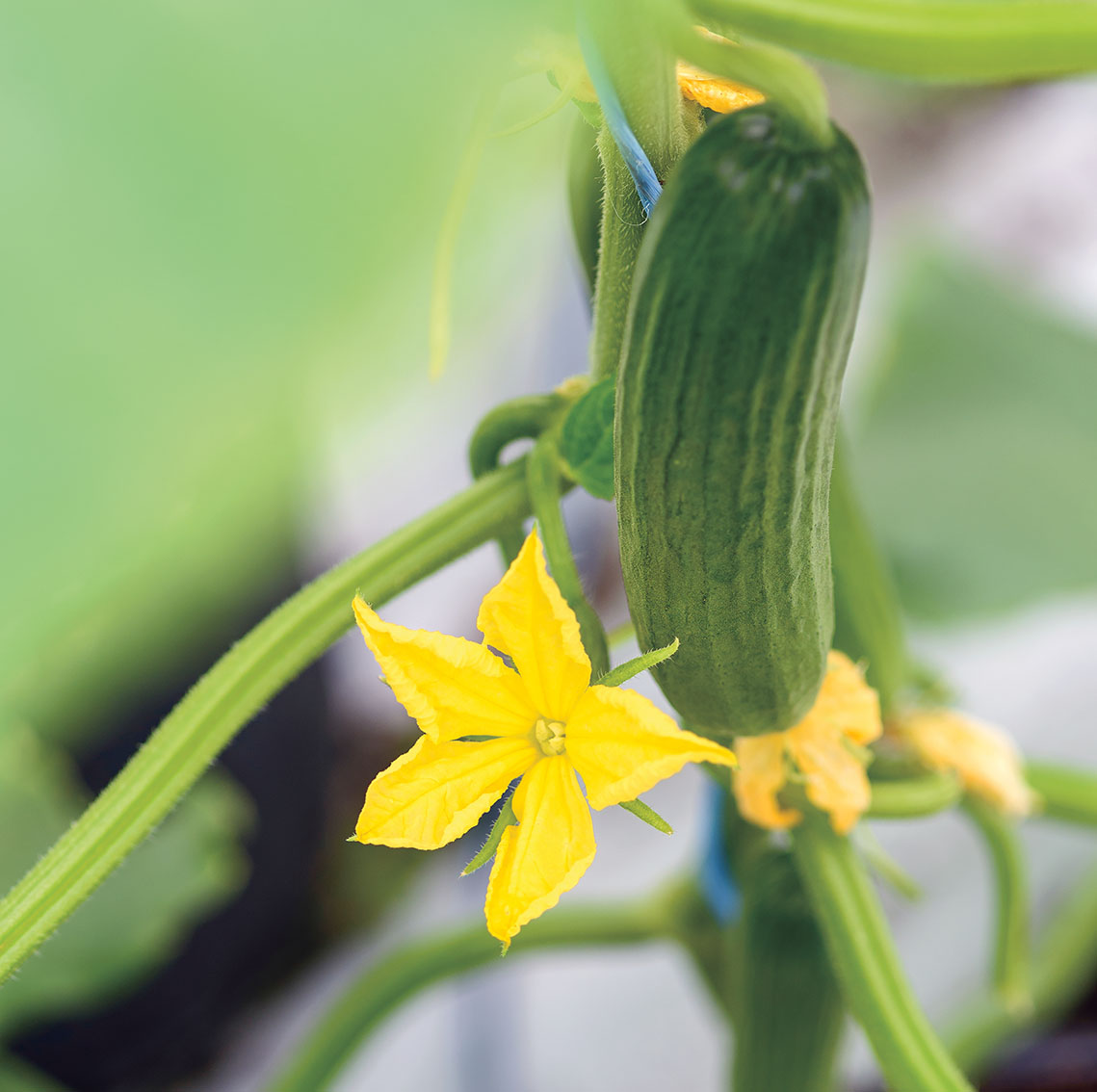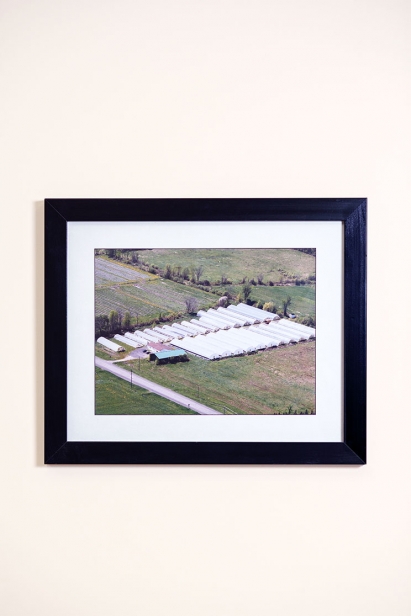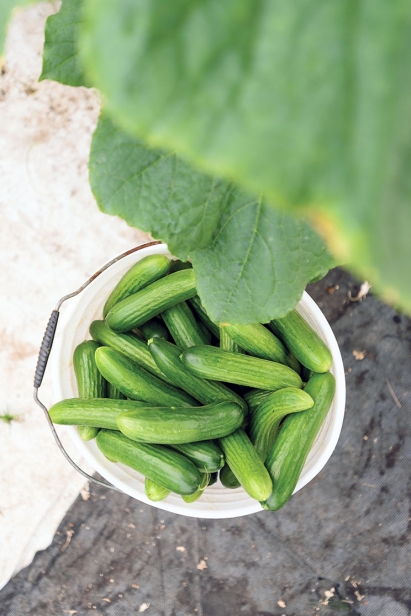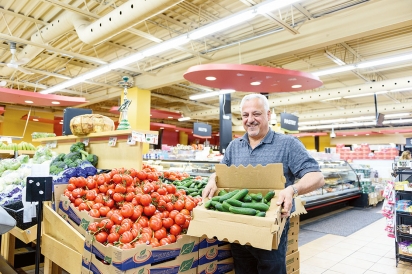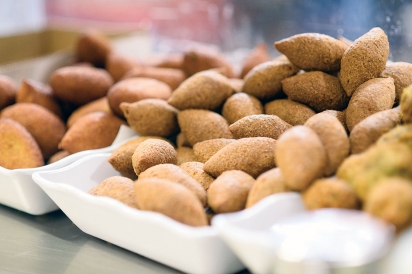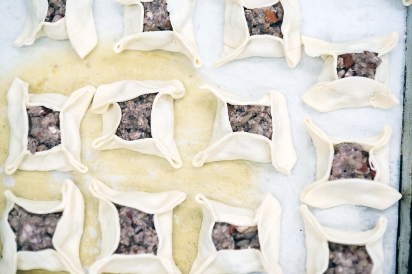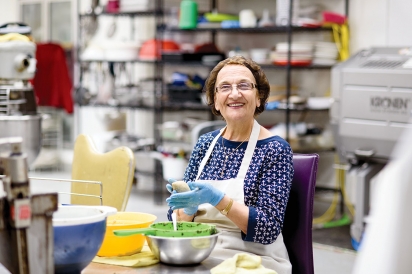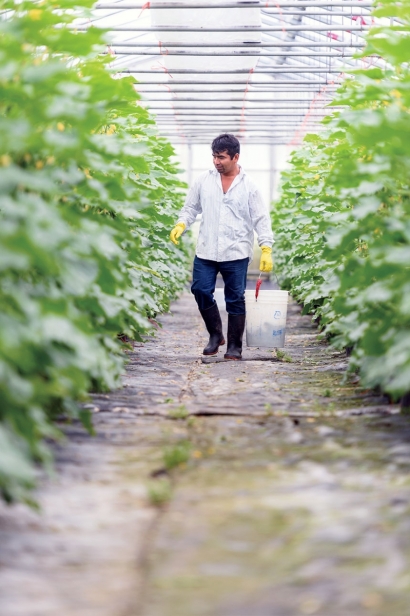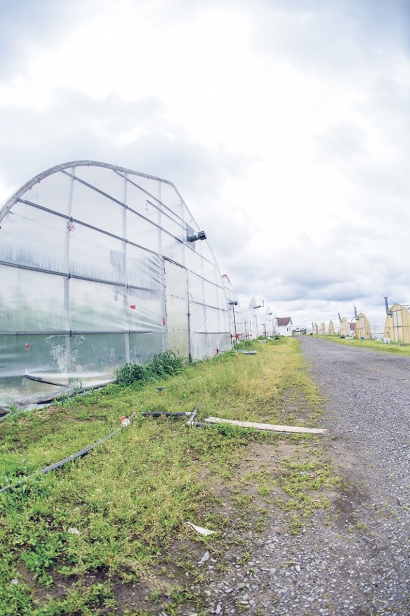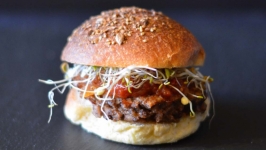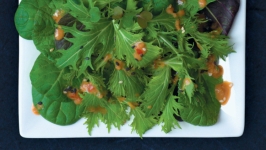Cucumbers and a Father's Legacy
There is a picture on the wall of Eli Njaim’s office, though not one you might expect. This particular picture gives an aerial view of a dozen greenhouses on Snake Island Road in Metcalfe, just south of Ottawa. Nothing directly to do with Njaim here — he is the co-founder of the Mid-East Food Centre, a hub for Lebanese and Middle Eastern groceries since 1988. Surely a picture of his own storefront on Belfast Street in the old Trainyards area of Ottawa would be more expected.
So why this picture? Those greenhouses weren’t even his idea. In fact, the entire Njaim family was against them, back when his late father David had proposed building them.
But those greenhouses represent the ambition and the entrepreneurial spirit that motivated Njaim and his Lebanese immigrant father.
David Njaim always dreamed big and never shied away from a challenging business opportunity. That’s why he purchased the land on Snake Island Road, banking on the fact that one day, the sprawling city would reach all the way out there and he’d capitalize on his investment. That’s why he eventually said yes when someone came knocking on his door asking if he’d want to farm this land. And that’s why he invested substantial amounts of money in the greenhouses, in which he started growing Lebanese cucumbers, those thin-skinned varieties marketed elsewhere as baby cucumbers.
“Originally, when he started doing cucumbers in the late '90s, he wasn’t doing it for our store," his son now says. "Our store wasn’t allowed to sell fruits and vegetables because we had St. Laurent Food next to us. But when he started producing cucumbers, it turned out to be a better product than those of the competition — so he started putting them in our store even though I told him we couldn’t.”
Such was David’s way. He didn’t hesitate. He just did it.
His long legacy began in 1971 when he opened Leo’s Confectionary on Kirkwood Avenue, 13 years after he’d emigrated to Canada. By 1975, he’d started putting Lebanese food on the shelves. “The Lebanese population was starting to grow and people were asking for certain things,” Njaim says. “We introduced the city to the hummus, the meat pies, the cheese pies. Most of our customers were Lebanese and nobody else knew what these things were back then.”
Today, of course, Ottawans have a far more cosmopolitan palate, and Njaim points with satisfaction to the many shawarma stores that dot the city’s map.
Njaim was quick to follow in his father’s entrepreneurial footsteps. At 17, he stumbled upon a Montreal company that sold shortenings and oils. His father, seeing a business opportunity, ordered a large quantity of both products and put them in his garage. He then said to his budding entrepreneur son, “This is your new business. Go sell them.”
Njaim took to the task with enthusiasm, loading product in his father’s van and driving from pizza parlour to pizza parlour in search of sales. But at the end of the month, the revenues were disappointing. “I said to my father, ‘Geez, three hundred pails at $3 each — I’m only going to make $900 and it’s taken me over a month. It’s not worth it.” He chalked this up to experience
Both father and son wanted to be big in business. When Njaim brought his father to see the 3,000-square-foot store where the food centre would be, his father asked, “How much do you want of this?” Njaim’s reply must have gratified his father. “What are you talking about? I want it all,” he said.
So his father co-signed the rental agreement in 1988 and Naim and his sister Margo were soon in business.
The food centre grew quickly from 3,000 square feet to 8,000, and on to 12,000, finally reaching its current size of 16,000 square feet. “And we’re still expanding,” Njaim says.
Today it continues to be a multi-generational family business with Njaim managing operations and Margo as the store's head buyer. Three of Njaim's children work at the store, his mother is there to oversee operations and his mother-in-law still makes the vegetable kibbe by hand.
Despite his family’s successes in the world of grocery and wholesaling, something about the greenhouses had an irresistible attraction for David. He’d often work alongside Andre Hanna, his farm manager who still remains the backbone of this side business.
“My father just loved those greenhouses,” Njaim recalls. “When you put a seed in and it grows and it becomes something, he’d just stand there and admire it. He’d be there 12 or 14 hours a day in addition to the time he’d spend in the store. And he could barely walk. He’d come back exhausted.”
Today, as in David’s time, the greenhouses are lush with bushes of purslane, a spinach-like green, and Lebanese cucumber vines. Given how flooded the Ottawa market is, most of their product heads for Montreal with the exception of the boxes sold at the Mid-East Food Centre during the growing season.
Everything from seeding to shipping is done by Hanna, his brother and two foreign workers who come up from Mexico every year. “Even though we own the place, Andre’s more of a partner than an employee,” Njaim says. “He’s the guy. He knows how much fertilizer, when to use it and when to vent out the greenhouses. During the growing season, he’s there for 15 hours a day.”
David, who died five years ago, wanted the greenhouses to keep going even after he was gone and the family has made that happen. Beyond that, the Njaim family has a philosophy of standing by their employees, a loyalty they extend to their community.
“My Dad had a good, generous heart,” Eli says. “I watched him give groceries to people who couldn’t afford it, but were obviously in need. He’d load them up.”
David Njaim often told his young son, “I sleep comfortably at night.” When Njaim eventually opened his own business, he asked his father what he’d meant by those words. “He told me, ‘I never screwed anyone over — nobody can come to you and say, your Dad screwed me.’ He believed in being fair and helping people. It wasn’t just about business.”
The Lebanese cucumbers, which stand at the front of the Mid-East Food Centre’s small vegetable section today, are still bought by the boxful. They’re eaten in salads such as the celebrated fattoush or simply as a conveniently sized snack. They are a truly local product in a store that carries products from around the world — everything from canned goods, meats (excluding pork and pork products) and spices to prepared foods, cheeses, olives and nuts.
Those cucumbers are a great local food, but they’re more than that. Like the picture of the greenhouses on Eli’s office wall, they are proof of a father’s legacy, a man who carved out a space in a new country and did it with generosity, business acumen and a pioneer’s vision.
Mid-East Food Centre
1010 Belfast Rd., Ottawa, Ont.
mideastfoods.com, 613.244.2525


